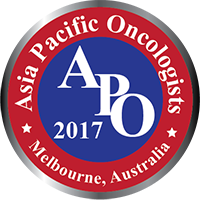
Jun-Yang Liou
National Health Research Institutes, Taiwan
Title: 14-3-3 proteins regulate tumor progression of hepatocellular carcinoma
Biography
Biography: Jun-Yang Liou
Abstract
14-3-3 proteins comprise seven isoforms (β, ε, γ, η, σ, τ/θ and ζ) and share highly conserved homology among all eukaryotic cells. 14-3-3 proteins regulate multiple cellular functions including cell cycle regulation, DNA repair, apoptosis, cell adhesion and motility through binding with Ser/Thr phosphorylated proteins, thereby influencing conformation, activity, subcellular localization and protein complex stability. 14-3-3 proteins are implicated in regulating tumor progression of various types of human malignancies. We have demonstrated that selective 14-3-3 isoforms (β, ε, γ and σ) are overexpressed in hepatocellular carcinoma (HCC) while compared with the surrounding non-cancerous liver tissues. Results from the in vitro experiments and in vivo xenograft mice model indicate that 14-3-3 proteins promote HCC cancer cell proliferation, epithelial-mesenchymal transition (EMT), cell migration, invasion and tumor growth. Overexpression of selective 14-3-3 proteins is significantly correlated with microvascular invasion, high risk of metastasis as well as worse overall survival rate of HCC patients. These results suggest that increased expression of 14-3-3 proteins play important roles in regulating HCC tumor development. We have identified several downstream factors including focal adhesion kinase (FAK), Par-3, Zeb-1, β-catenin, heat shock factor-1 (HSF-1) and heat shock protein 70 (HSP70), aldo-keto reductase family 1 B10 (AKR1B10) and metallothionein-1 (MT-1) are regulated by 14-3-3 proteins in HCC. We have discovered that 14-3-3ε up-regulates FAK via activation of NFκB pathway and expression of 14-3-3ε is significantly correlated with the polarity controlling protein Par-3. We found 14-3-3ε induces Zeb-1, thereby suppressing E-cadherin expression and promoting EMT. Our study indicated that 14-3-3ε up-regulates AKR1B10 through a β-catenin-dependent mechanism and AKR1B10 is involved in promoting cancer cell proliferation and tumor growth of HCC. Moreover, we found that stromal cells incubation with 14-3-3σ-CM or treated with recombinant 14-3-3σ protein induces expression of matrix metalloproteinases (MMPs). Finally, results from knockdown of aminopeptidase N (APN) reveal that HCC-secreted 14-3-3σ promotes expression of MMPs in cancerous surrounding cells via an APN dependent mechanism. Taken together, 14-3-3 proteins and related factors are considered as potential diagnostic biomarkers and therapeutic targets for HCC.

